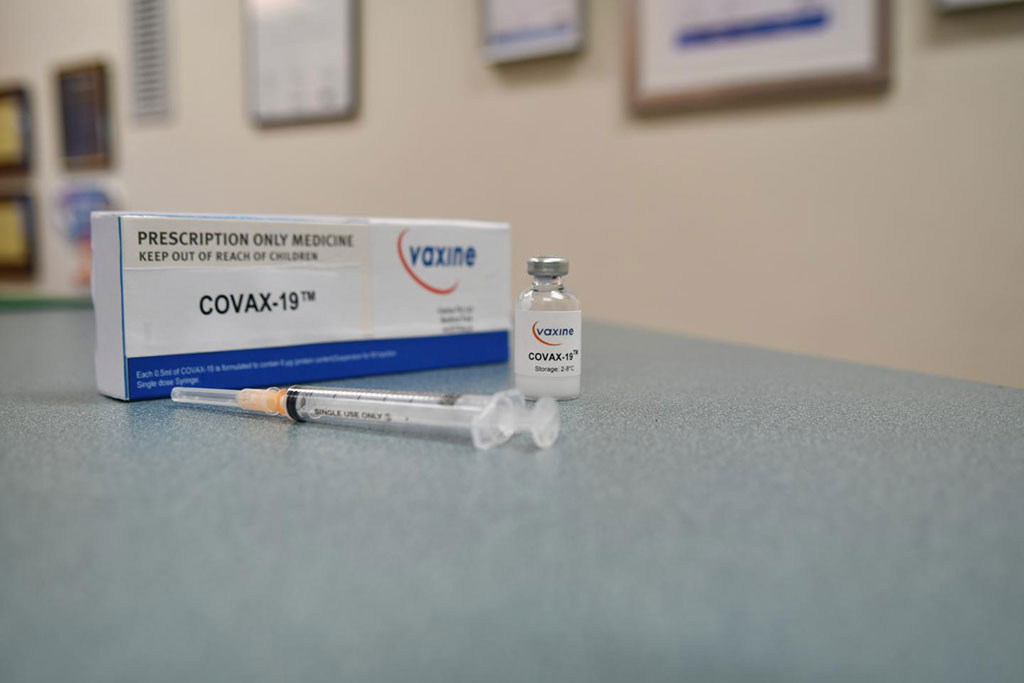
Image: Covax-19 (Photo courtesy of Vaxine Pty Ltd.)
The research team from Vaxine Pty Ltd. (Adelaide, Australia) used computer modelling on the coronavirus spike protein to rapidly design a synthetic COVID-19 vaccine. The Vaxine team was able to design, manufacture and advance their Covax-19 vaccine into human trials in under five months in a process that normally would take up to 15 years. The team is also using similar techniques for other projects, including a new treatment for respiratory complications of COVID-19, a preventive nasal spray, and a rapid response test to predict how severely the disease will progress.
Recently, the Vaxine research group released a list of up to 80 new potential candidate drugs against the COVID-19 virus. The possible therapies were identified using cloud-based supercomputer programs used by Vaxine in its vaccination research modelling, allowing other researchers to further investigate their potential. Using the genetic sequence of COVID-19, the team built three dimensional molecular structures of key COVID-19 proteins that were then used to screen existing drugs and natural remedies for potential activity against the COVID-19 protease protein. The team used high performance cloud computing services provided by Oracle under a research grant to Flinders University (Adelaide, South Australia) that enabled the team to rapidly screen for potential drugs against COVID-19.
“Thanks to our unique ability to run computer simulations on the virus before it is even fully characterized, we were able to dramatically speed up the ability to design our Covax-19 vaccine,” said Flinders University Professor Nikolai Petrovsky, Research Director of Vaxine. “The vaccine based on the synthetic spike protein was then manufactured in insect cell cultures before being combined with our Vaxine Advax adjuvant, which is used to turbocharge the vaccine and make it more effective.”
“It is exciting to be at the forefront of global COVID-19 science efforts, applying all the latest cutting edge methods including artificial intelligence and high performance cloud computing to create potential pandemic drugs and vaccines as part of the Vaxine team,” said Dr. Sakshi Piplani, who leads Vaxine’s bioinformatics team.
Related Links:
Vaxine Pty Ltd.
Flinders University


